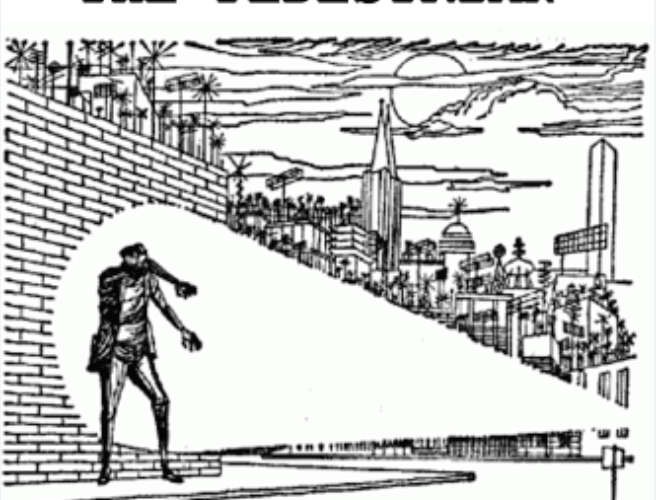Ray Bradbury was an American author and screenwriter, born in 1920 (died in 2012). His genres included fantasy, science fiction, horror, mystery, and realistic fiction. I think the last category is the one for his 1951 story “The Pedestrian.”
It’s very short story you can probably read in about five minutes here. It shows an intrepid lover of the outdoors taking an evening walk in a world where people no longer leave their homes. He passes house after house of people sitting and staring at screens. He nailed the world we live in today.
Well, it’s the world of a specific American population: white collar workers who can work remotely through our computers. It especially applies to the part of Chicago where I live. These days many — too many — north side Chicagoans do not like to leave our homes. We want a Zoom option for everything from staff meetings to live performances to religious services. We have so completely adjusted to pandemic-required social distancing that we’ve forgotten how to leave our homes, canceling social plans at the last minute, only applying to remote jobs, and wishing we had more community while we rarely leave home to see anyone.
Except for me. I’m actually on job search right now for a position in Chicago (or Evanston), on site, working with others who also physically come in to the office. I want to be part of a team of people who breathe the same air and occasionally consume food in each other’s physical presence. I want to leave my home and ride public transportation to another location. I can’t wait to start this new job I’m seeking.
But when I tell people I want a part-time job as an executive assistant that would be on site and NOT remote, I can tell they don’t understand it. Regina wants to leave her home to go to work? Why would anyone want to do that?
Just call me Mr. Leonard Mead. At least Bradbury sets his story in 2053. I hope I have that much time before my fate is the same as what happens to Mr. Mead at the end of “The Pedestrian.”
9 Nov 2022

It’s funny to see what 1950s writers got right about the future and what they got wrong. Bradbury’s story predicted what things would feel like in 2020, when absolutely no one was going out, but he got wrong exactly what screens we’d be looking at. I also like how he foresaw that everything would be automated and connected by computers, but his 2053 computer accesses data “as if information, somewhere, was dropping card by punch slotted card under electric eyes.” But he can be forgiven for not guessing how incredibly fast computers and electronics would evolve.